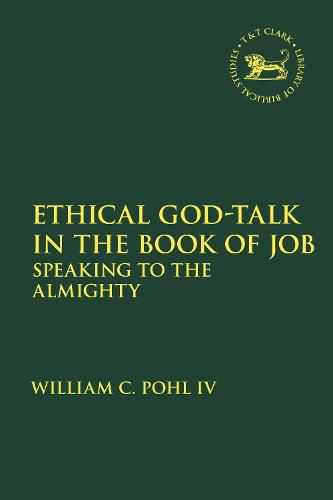Readings Newsletter
Become a Readings Member to make your shopping experience even easier.
Sign in or sign up for free!
You’re not far away from qualifying for FREE standard shipping within Australia
You’ve qualified for FREE standard shipping within Australia
The cart is loading…






William C. Pohl IV investigates ethical God-talk in the book of Job, by exploring the prominence of such theology, showing how each major section of the book highlights the theme of proper speech, and demonstrating that Job’s internal rhetoric is the foundation for the book’s external rhetoric. Pohl analyses each of Job’s speeches for literary rhetorical situation, forms (i.e., genres), its rhetorical strategies; the rhetorical goals of each speech are identified in light of Job’s exigency (or exigencies) and his use of strategies is explored in light of these goals.
Pohl argues that Job faces two main exigencies: his suffering and the necessity of defending his protest prayer vis-a-vis his friends. Job seeks to alleviate his suffering with protest prayer, and to defend his prayers to the friends through argumentation. Following the internal rhetorical analysis, this study proceeds to examine the external rhetorical effect of the Elihu and Yahweh speeches vis-a-vis ethical God-talk. Pohl concludes that the book of Job shapes its readers to see protest prayer as an ethical, even encouraged, form of discourse in the midst of innocent suffering. Brief implications of this conclusion are outlined, identifying the book’s rhetorical situation through the entextualized problem in the book. Pohl proposes a new exigency for the book of Job in which protest prayer was eschewed, and a tentative proposal for the book of Job’s historical provenance is outlined.
$9.00 standard shipping within Australia
FREE standard shipping within Australia for orders over $100.00
Express & International shipping calculated at checkout
William C. Pohl IV investigates ethical God-talk in the book of Job, by exploring the prominence of such theology, showing how each major section of the book highlights the theme of proper speech, and demonstrating that Job’s internal rhetoric is the foundation for the book’s external rhetoric. Pohl analyses each of Job’s speeches for literary rhetorical situation, forms (i.e., genres), its rhetorical strategies; the rhetorical goals of each speech are identified in light of Job’s exigency (or exigencies) and his use of strategies is explored in light of these goals.
Pohl argues that Job faces two main exigencies: his suffering and the necessity of defending his protest prayer vis-a-vis his friends. Job seeks to alleviate his suffering with protest prayer, and to defend his prayers to the friends through argumentation. Following the internal rhetorical analysis, this study proceeds to examine the external rhetorical effect of the Elihu and Yahweh speeches vis-a-vis ethical God-talk. Pohl concludes that the book of Job shapes its readers to see protest prayer as an ethical, even encouraged, form of discourse in the midst of innocent suffering. Brief implications of this conclusion are outlined, identifying the book’s rhetorical situation through the entextualized problem in the book. Pohl proposes a new exigency for the book of Job in which protest prayer was eschewed, and a tentative proposal for the book of Job’s historical provenance is outlined.